Why the New Winnie the Pooh Movie Is Banned in China
A story of censorship in the age of memes
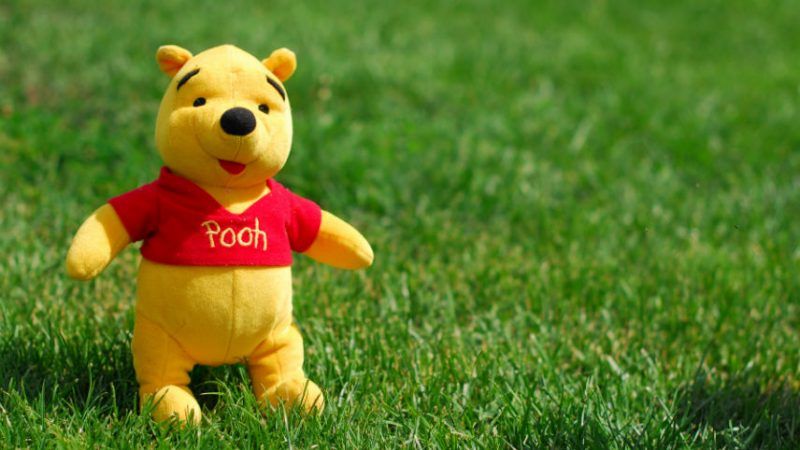
Disney's new Christopher Robin movie has been banned in China. That's because, as far as one can tell through a haze of doubletalk and official obfuscation, it's basically illegal to make Pooh jokes in the Middle Kingdom.
Technically, the film's exclusion falls under the quota China has imposed on foreign films. Only 34 are allowed in theaters each year, which allows the government to retain some amount of formal control over what movies the population sees. But a more likely truth is that the film was singled out because the innocent-looking bear in A. A. Milne's story is actually considered subversive.
Rumors of China banning Winnie the Pooh are not new. In July 2017, it was widely reported in the Western media that China had been censoring internet memes in which the endearing bear was compared to the Chinese President Xi Jinping. While some reports do note that these memes carry concealed subversive messages in a particularly sensitive period—the advent of Xi's power grab—one may still have a hard time figuring out just where exactly lies the disguised innocence in the memes which only consist of mere juxtaposed images of Xi and Pooh.
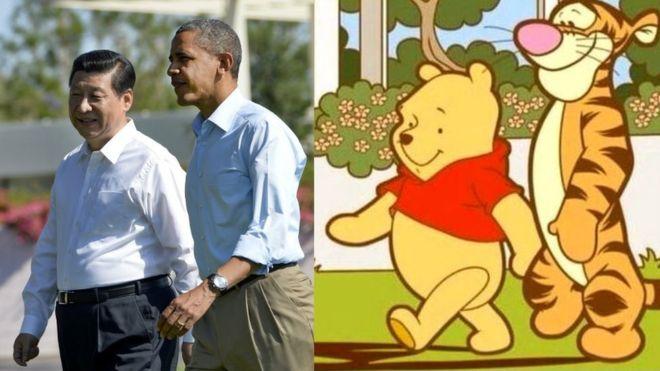
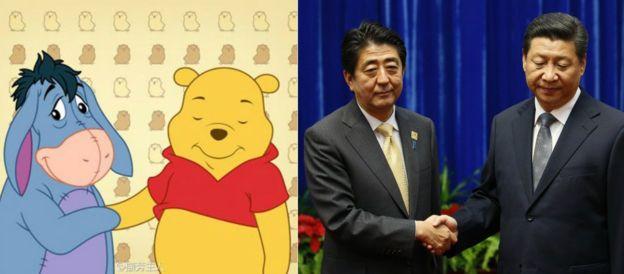
Mainstream media on the Chinese mainland have said almost nothing about the prohibition of Christopher Robin and the Xi-Pooh "screen-block," the term Chinese netizens use to describe internet content controls. After all, the act of censoring itself is too taboo for the public to discuss openly, and the state does not usually offer any official justification for its decisions. To further complicate things, there are no guidelines on what is or will be banned by the state censorship board. This creates a speculative rumor mill about what type of material is "sensitive." Understanding the Pooh Dilemma, then, requires some sleuthing.
One of the more explicitly sensitive Xi-Pooh comparisons appeared on Weibo—a Twitter-like platform—earlier this year. On February 25, Xinhua, the official press agency in China, reported that Xi Jinping would announce the annulment of the term limit for the Chinese president. Since then, an avalanche of keywords seems to have been banned on Weibo and other platforms, including "Xi Jinping," "enthronement," "I disagree," and "objections." The announcement of an illiberal policy coupled with a crackdown on dissenting language led Chinese netizens to express their opinions in a creative way: many flocked to the official Disney Weibo page to comment on a Weibo post from September 2, 2013, featuring an image of Pooh hugging a gigantic pot of honey and a classic quote from A.A. Milne's original story: "Find the thing you love and stick with it."
Some of the comments include:
"Shock!"
"Witnessing history."
"Prophecy from God."
"Winnie the Prophet."
"Screen captured. Good luck!"
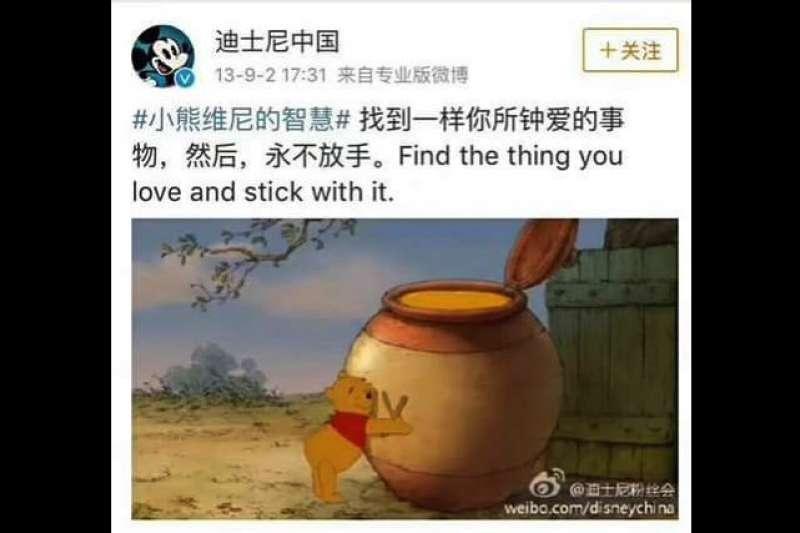
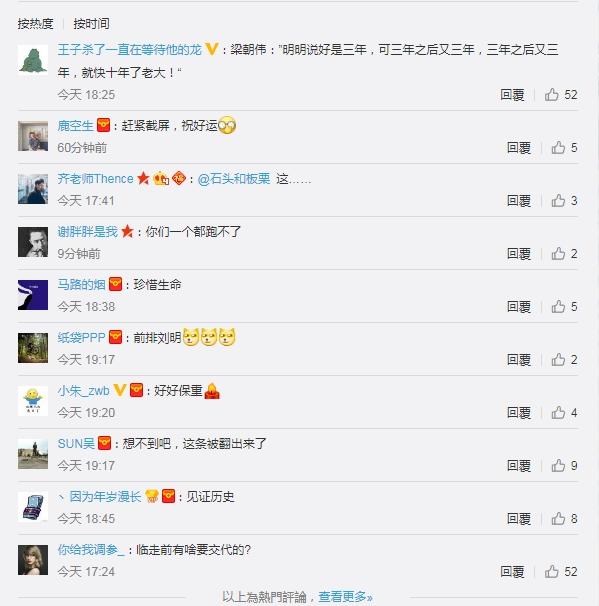
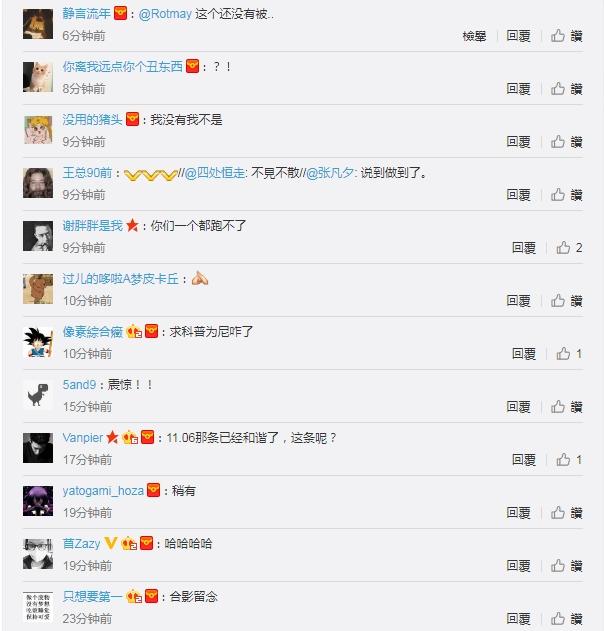
No comment mentioned any of the sensitive keywords; yet the timing, tone, and volume of the comments reveal them to be a response to Xi's decision to abolish his own term limit.
Within a day, this post, together with all the comments, disappeared. It remains unclear whether the state censorship board screen-blocked the content, or if Disney China deleted the post to preserve the company's access to the Chinese market.
The incident illustrates the transformation of Winnie the Pooh memes in Chinese cyberspace, from light joke to potential civic activism. Even when they are unable to use the traditional language of dissent, Chinese netizens inside the firewall have found ways to coordinate and criticize the political regime.
Xi-Pooh humor also shows how online subculture, especially memes, can serve as vehicles of subversion in a country where the public sphere is heavily policed by an unaccountable government. The circulation of the Xi-Pooh memes is not meaningless, nor is it a form of slacktivism or a "feel-good" mechanism; rather, these memes are an adaptive response to an existential threat. Sharing pictures of Pooh allows Chinese netizens to engage in civic discussion and participation, despite the best efforts of government censors.
If there is a weakness in the Pooh approach to dissent, it's that the government never seems to formally acknowledge it as dissent. The Pooh movie will not show in China, but the government will not say why and the media will not demand answers. That nearly every cultural product associated with Winnie the Pooh—including the film, the memes, and commentaries like John Oliver's segment on Last Week Tonight—are still subject to censorship in China certainly suggests a censorious state crackdown on seemingly innocuous Xi-Pooh humor.
The ban on even humorous forms of criticism is yet another red flag for freedom of speech in China: If the people of China can't criticize their government, and they can't laugh at its efforts to silence them, what exactly will the government allow them to say and do?
